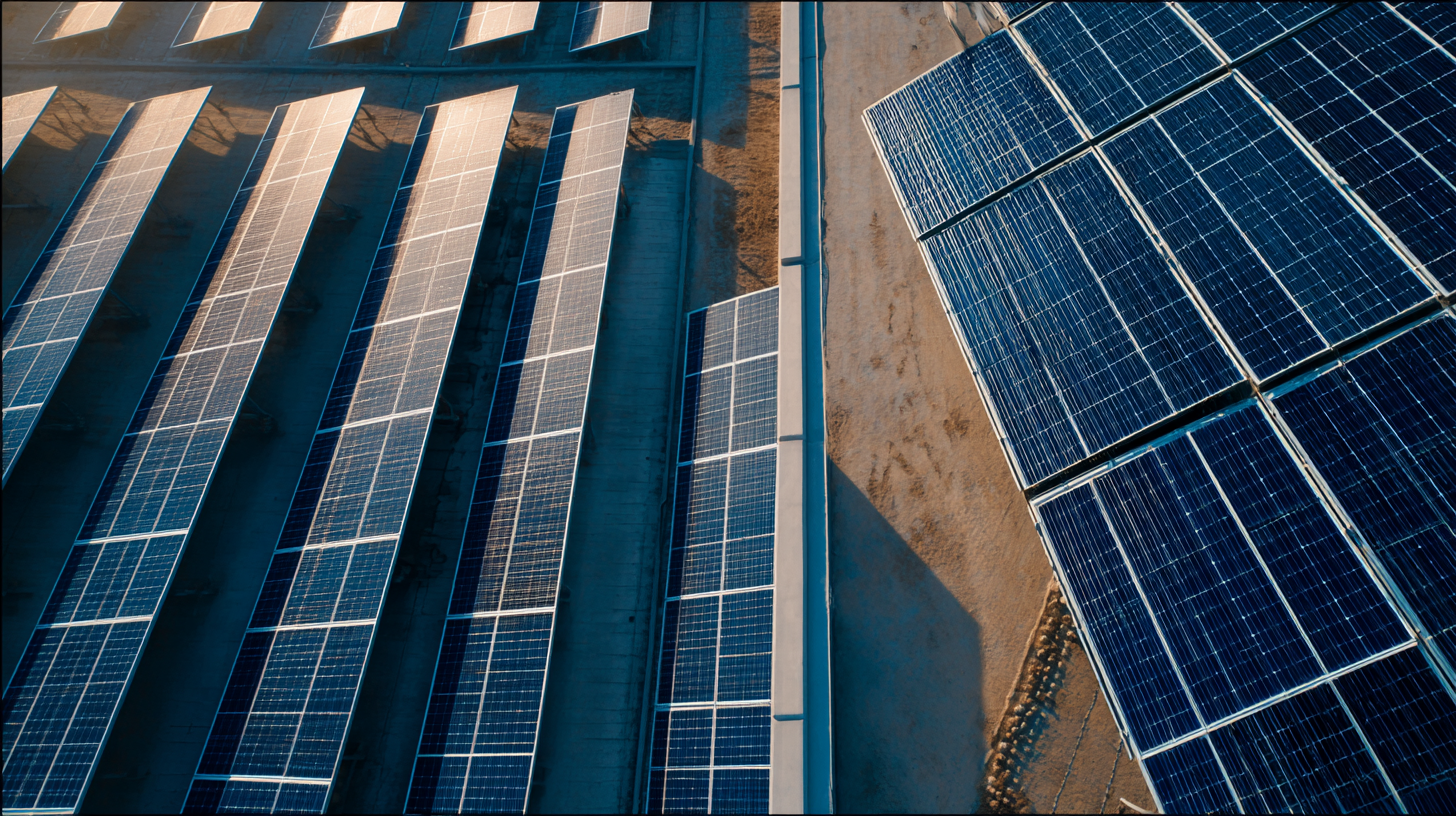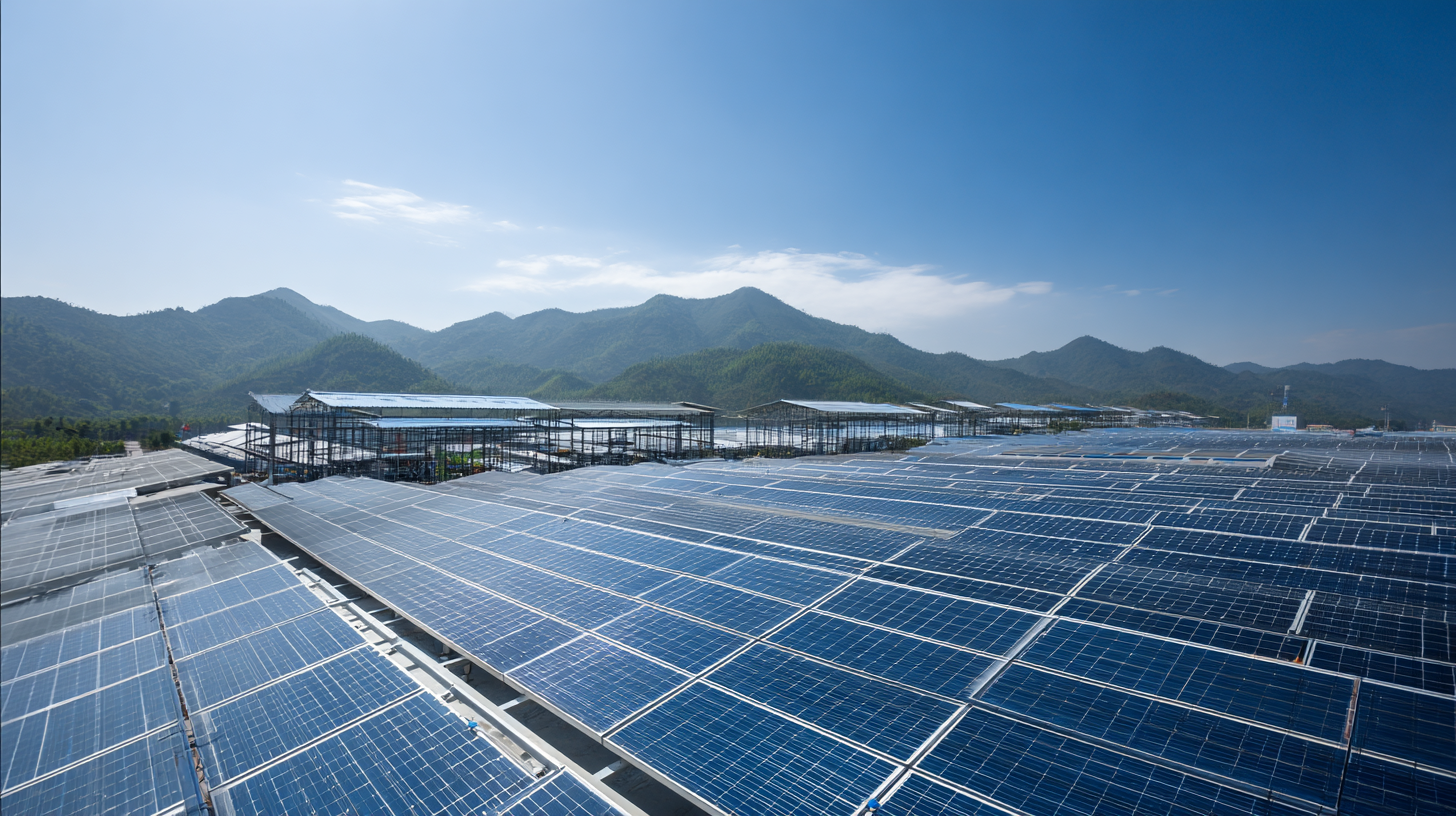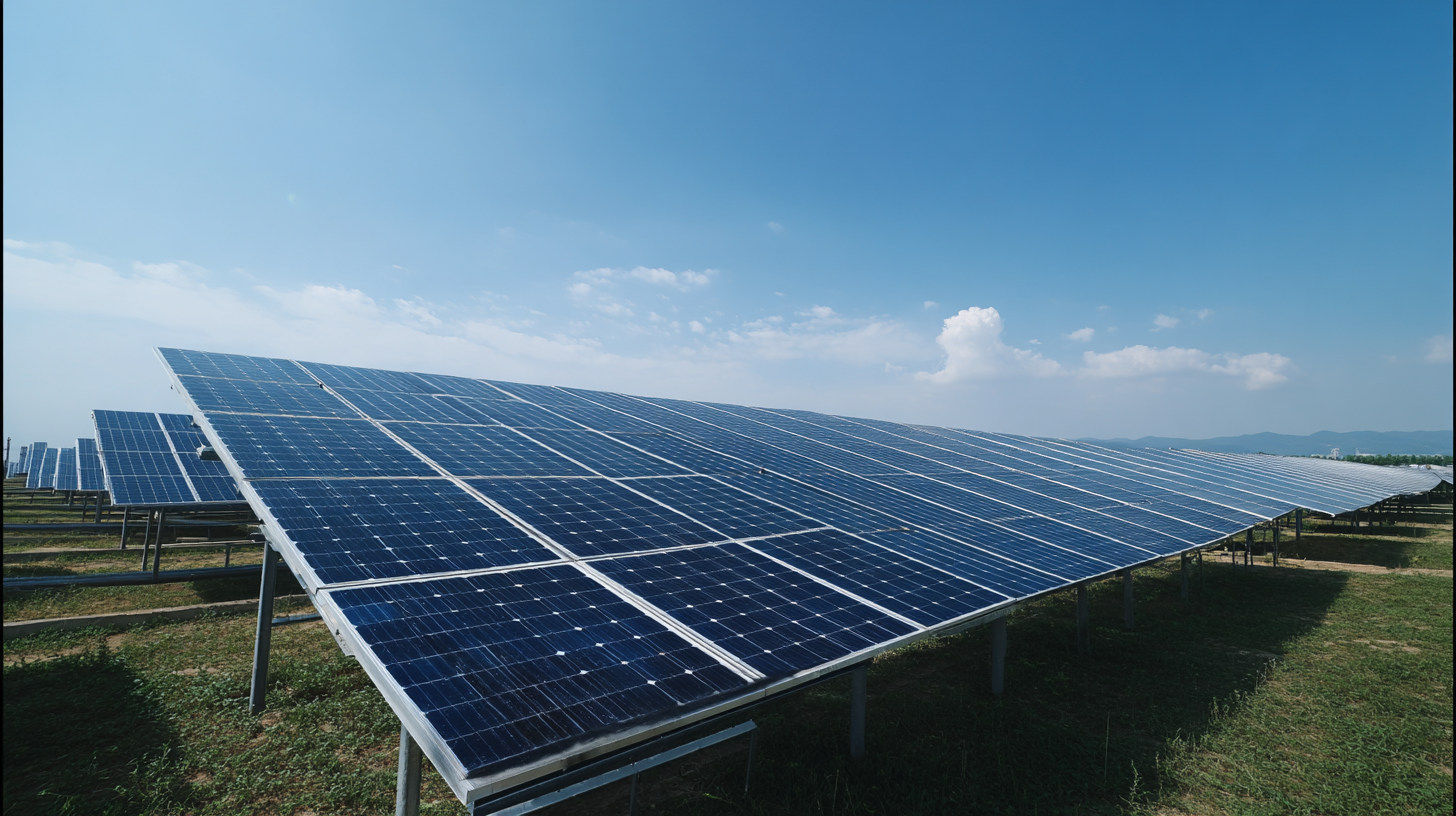Uncompromising Quality in Solar Solutions: China’s Leading Manufacturing for Global Supply
As the global demand for renewable energy solutions intensifies, the solar industry stands at the forefront of this transformation.
According to a recent report by the International Energy Agency, global solar installations are projected to surpass 1,000 gigawatts by 2025, highlighting
the critical role of solar energy in the fight against climate change.  China, with its robust manufacturing capabilities and technological advancements, is emerging as a leader in the solar supply chain, providing
uncompromising quality in solar solutions to meet this surging demand. With innovative production techniques and rigorous quality control,
China's top-tier factories are setting new benchmarks in solar installation standards, ensuring that they not only meet but exceed international performance criteria.
This blog will delve into the intricate dynamics of China's solar manufacturing landscape and its pivotal contribution to global energy sustainability.
China, with its robust manufacturing capabilities and technological advancements, is emerging as a leader in the solar supply chain, providing
uncompromising quality in solar solutions to meet this surging demand. With innovative production techniques and rigorous quality control,
China's top-tier factories are setting new benchmarks in solar installation standards, ensuring that they not only meet but exceed international performance criteria.
This blog will delve into the intricate dynamics of China's solar manufacturing landscape and its pivotal contribution to global energy sustainability.
Unveiling China's Role in Global Solar Manufacturing Excellence
China has established itself as a powerhouse in the global solar manufacturing sector, accounting for nearly 70% of the world’s solar panel production. According to a report by the International Energy Agency (IEA), China's dominance is not merely a result of scale, but also of its commitment to technological innovation and quality. With significant investments in R&D, Chinese manufacturers are leading the charge in developing more efficient solar technologies, including bifacial solar panels and advanced energy storage solutions.

Moreover, China’s role is critical in achieving global renewable energy targets. The Global Solar Council reported that the country is responsible for producing over 80% of the world's polysilicon, a vital material in solar panel manufacturing, highlighting its integral position in the supply chain. As countries aim to transition to greener energy sources, China's unparalleled manufacturing capabilities and stringent quality controls ensure that it remains at the forefront of solar solutions, meeting the increasing demand for sustainable energy across the globe. This pivotal role not only contributes to local economies but also supports international efforts to combat climate change.
Key Factors Driving Uncompromising Quality in Solar Solutions
In the dynamic landscape of solar solutions, China’s leading manufacturers are renowned for their uncompromising quality. A significant factor driving this quality is the focus on advanced technology and innovative manufacturing processes. By investing in cutting-edge equipment and research, Chinese companies are capable of producing highly efficient solar panels that meet rigorous global standards. This relentless pursuit of technological excellence ensures that the products not only perform better but also last longer, providing enhanced value for customers around the world.
Tip: When choosing solar solutions, always look for manufacturers that integrate the latest technology and invest heavily in research and development. This often translates into better performance and durability in the long run.
Another crucial factor is the stringent quality control measures implemented throughout the production process. Chinese manufacturers adhere to international quality certifications and standards, mitigating the risks of defects and inefficiencies. By maintaining a comprehensive quality assurance framework, these companies can assure their clients that every product leaving the factory is reliable and high-performing.
Tip: Before making a purchase, verify the manufacturer's quality certifications. This step is essential to ensure that you are investing in products that meet high industry standards, ultimately leading to a more sustainable energy solution.
Innovative Technologies Behind China’s Leading Solar Products
China has established itself as a powerhouse in the solar solutions industry, boasting innovative technologies that drive progress and efficiency in solar products. Key advancements such as bifacial solar panels, which capture sunlight from both surfaces, and high-efficiency monocrystalline cells have transformed how we harness solar energy. These technologies not only enhance energy output but also contribute to reducing the overall cost of solar power, making it accessible to a broader audience worldwide.
Tip: When selecting solar products, consider the technology behind the panels. Understanding specifications like efficiency ratings and warranties can significantly influence your investment decision. Investing in high-quality solar solutions ensures long-term benefits and energy savings.
Moreover, China’s commitment to research and development has fostered the creation of cutting-edge solar storage systems. These innovations provide consumers with reliable energy solutions and enhance the overall effectiveness of solar installations. The integration of smart technology, such as IoT capabilities, allows for real-time monitoring and optimization of energy consumption.
Tip: Look for manufacturers that offer smart technology integrations in their solar systems. These features can lead to better management of energy use, ultimately maximizing the benefits of your solar investment.
Uncompromising Quality in Solar Solutions: China’s Leading Manufacturing for Global Supply
This chart illustrates the growth in solar panel production capacity in China from 2018 to 2023, reflecting the innovative technologies driving the sector forward.
Sustainability Practices in Chinese Solar Manufacturing Industries
 In the realm of solar manufacturing, sustainability is not just a trend but a fundamental practice. China's leading solar manufacturers have embraced eco-friendly practices that significantly reduce their carbon footprint while ensuring high-quality production. From utilizing renewable energy sources in the manufacturing process to implementing waste reduction strategies, these industries are dedicated to creating sustainable solar solutions for the global market.
In the realm of solar manufacturing, sustainability is not just a trend but a fundamental practice. China's leading solar manufacturers have embraced eco-friendly practices that significantly reduce their carbon footprint while ensuring high-quality production. From utilizing renewable energy sources in the manufacturing process to implementing waste reduction strategies, these industries are dedicated to creating sustainable solar solutions for the global market.
Tip: To further enhance sustainability in solar manufacturing, companies can explore partnerships with local eco-friendly suppliers and invest in advanced recycling technologies. This not only supports local economies but also promotes a circular economy model where materials are reused effectively.
Moreover, transparency in the supply chain plays a crucial role in sustainable practices. By adopting traceability measures, manufacturers can ensure that their materials are sourced responsibly and ethically. This commitment to transparency not only builds consumer trust but also encourages other players in the industry to follow suit.
Tip: Implementing regular audits and sustainability assessments can help manufacturers identify areas for improvement while reinforcing their dedication to environmentally friendly practices. This proactive approach not only advances sustainability goals but also enhances the overall reputation of the solar industry.
Navigating the Global Supply Chain: Challenges and Solutions in Solar Industry
As the solar industry continues to expand, navigating the global supply chain presents a set of unique challenges. Data from the International Energy Agency (IEA) indicates that global solar demand is projected to grow by over 20% annually, highlighting the need for robust supply chain strategies. However, disruptions caused by geopolitical tensions and the COVID-19 pandemic have exposed vulnerabilities in the supply chain, particularly in the procurement of raw materials such as polysilicon, which has seen price increases of up to 400% in recent years.
To address these challenges, manufacturers are increasingly focusing on establishing localized supply networks. A recent report from the Solar Energy Industries Association (SEIA) suggests that investing in domestic production capabilities could reduce reliance on imports and increase resilience against market fluctuations. Additionally, partnerships with suppliers in regions rich in raw materials can help stabilize supply lines. By leveraging technology and innovative processes, the solar industry is not only aiming for efficiency but also striving to maintain uncompromising quality in solar solutions for a sustainable future.